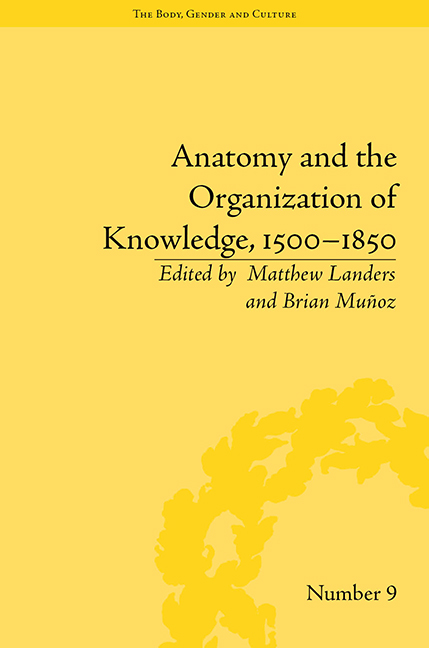Book contents
- Frontmatter
- CONTENTS
- List of Contributors
- List of Figures
- Introduction
- Part I The Body as a Map
- Part II The Collective Body
- Part III Bodies Visualized
- 10 Visualizing Monsters: Anatomy as a Regulatory System
- 11 Anatomy, Newtonian Physiology and Learned Culture: The Myotomia Reformata and its Context within Georgian Scholarship
- 12 Art and Medicine: Creative Complicity between Artistic Representation and Research
- 13 The Internal Environment: Claude Bernard's Concept and its Representation in Fantastic Voyage
- Notes
- Index
11 - Anatomy, Newtonian Physiology and Learned Culture: The Myotomia Reformata and its Context within Georgian Scholarship
from Part III - Bodies Visualized
- Frontmatter
- CONTENTS
- List of Contributors
- List of Figures
- Introduction
- Part I The Body as a Map
- Part II The Collective Body
- Part III Bodies Visualized
- 10 Visualizing Monsters: Anatomy as a Regulatory System
- 11 Anatomy, Newtonian Physiology and Learned Culture: The Myotomia Reformata and its Context within Georgian Scholarship
- 12 Art and Medicine: Creative Complicity between Artistic Representation and Research
- 13 The Internal Environment: Claude Bernard's Concept and its Representation in Fantastic Voyage
- Notes
- Index
Summary
Weak tho’ I am of limb, and short of sight,
Far from a lynx, and not a giant quite;
I'll do what Mead and Cheselden advise,
To keep these limbs, and to preserve the eyes.
Not to go back, is somewhat to advance,
And men must walk at least before they dance.
– Alexander Pope, The First Epistle of the First Book of Horace Imitated (1737)In these familiar lines from the Imitations of Horace, Alexander Pope references two of Georgian London's most famous medical men, Richard Mead and William Cheselden. Both were familiar to anyone knowledgeable of science, medicine or fashionable society in the 1730s, when the poem was written. Pope consulted each of them, and the lines suggest the intimate, advisory character of the period's medical practice. In an age when medical intervention counted for little in terms of combating illness, good advice was often the best one could hope for.
If not quite relegated to obscurity, Mead and Cheselden perhaps require some introduction today. As physician to King George II, Richard Mead (1673–1754) was an influential figure within the Royal Society, a respected patron of scholarship and an important collector of art and antiquities. William Cheselden (1688–1752) was one of the most celebrated surgeons of his day, well known for his skill in dealing with cataracts and his swiftness in cutting for the stone.
- Type
- Chapter
- Information
- Anatomy and the Organization of Knowledge, 1500–1850 , pp. 157 - 170Publisher: Pickering & ChattoFirst published in: 2014

